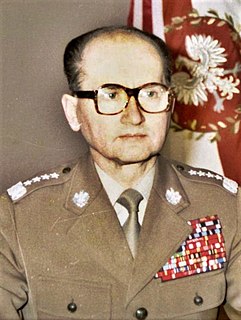Top 1200 Knowledge Workers Quotes & Sayings
Explore popular Knowledge Workers quotes.
Last updated on November 21, 2024.
Public education is the key civil rights issue of the 21st century. Our nation's knowledge-based economy demands that we provide young people from all backgrounds and circumstances with the education and skills necessary to become knowledge workers. If we don't, we run the risk of creating an even larger gap between the middle class and the poor. This gap threatens our democracy, our society and the economic future of America.
It is instructive to see how organizations pursue their goal of reducing errors and uncertainty. They impose standards, employ checklists, demand that knowledge workers list assumptions for their conclusions and document all sources. These actions either directly interfere with forming insights or create an environment where insights and discoveries are treated with suspicion because they might lead to errors. They signal to knowledge workers that their job is not to make mistakes. Even if they don't make discoveries, no one can blame them as long as they don't make mistakes.
Knowledge is a burden if it robs you of innocence. Knowledge is a burden if it is not integrated into life. Knowledge is a burden if it doesn't bring joy. Knowledge is a burden if it gives you an idea that you are wise. Knowledge is a burden if it doesn't set you free. Knowledge is a burden if it makes you feel you are special.
Apparently, union bosses are so distraught about declining enrollments they will stoop to exploiting illegal workers. There is no doubt that this would hurt American workers, who would suddenly face a flooded job market full of cheap foreign labor. It would depress the wages of the American workers and cost them jobs.
The production of knowledge in schools today is instrumental, wedded to objective outcomes, privatized, and is largely geared to produce consuming subjects. The organizational structures that make such knowledge possible enact serious costs on any viable notion of critical education and critical pedagogy. Teachers are deskilled, largely reduced to teaching for the test, business culture organizes the governance structures of schooling, knowledge is viewed as a commodity, and students are treated reductively as both consumers and workers.
Through that organization [Community Service Organization], I met Cesar Chavez. We had this common interest about farm workers. We ultimately left CSO to start the National Farm Workers Organization, which became the United Farm Workers. I was very blessed to have learned some of the skills of basic grassroots organizing from Mr. Ross and then be able to put that into practice in both CSO and the United Farm Workers.
Land Grant College Act is the jewel of Republican reform. It had not occurred to any other country to educate their farmers and workers. When the British studied the reasons for American success in 1851, the consensus was that Americans workers were well educated. So they didn't oppose progress the way British workers did.
The financial crisis just made the hole deeper, which is why our stimulus needs to be both big and smart, both financially and educationally stimulating. It needs to be able to produce not only more shovel-ready jobs and shovel-ready workers, but more Google-ready jobs and Windows-ready and knowledge-ready workers.
We have seen numerous instances in which American businesses have brought in foreign skilled workers after having laid off skilled American workers, simply because they can get the foreign workers more cheaply. It has become a major means of circumventing the costs of paying skilled American workers or the costs of training them.
Union membership is not the sole guarantor of job security and a living wage, but nonunion factory workers do not enjoy the same protections as union workers. They're subject to exploitation, underpayment and lower standards of workplace safety - which is also often the case for manufacturing workers outside the United States.
While writing my memoir, 'When Skateboards Will Be Free,' I would sometimes have to pore over hours of microfilm at the New York Public Library in order to try to get one obscure detail right. For instance, was the Socialist Workers Party originally called the American Workers Party or the Workers Party of the United States?
When speaking of a "body of knowledge" or of "the results of research," e.g., we tacitly assign the same cognitive status to inherited knowledge and to independently acquired knowledge. To counteract this tendency a special effort is required to transform inherited knowledge into genuine knowledge by revitalizing its original discovery, and to discriminate between the genuine and the spurious elements of what claims to be inherited knowledge.
Whenever possible, I like to have the supreme head of a company show me over the works. It is extremely illuminating to note the attitude of workers towards their boss, and equally interesting to note the attitude towards the workers. It is tragic to notice how many chief executives of large concerns are absolutely unknown, even by sight, to the rank and file of their workers.
Imperialism has now reached a degree of almost scientific perfection. It uses White workers to conquer the non-white workers of The Colonies. Then, it hurls the non-white workers of one colony against those of another non-white colony. Finally, it relies on the Colored workers of the colonies to rule the White workers. Recently, White French soldiers near mutiny in the occupied Ruhr of Germany, were surrounded by French African soldiers, and colored native light-infantry were sent against White German strikers.
I don't think people who are supporting the food movement ever want to be in a position where they are opposing the workers who are dependent on the system. The companies are very good at setting up workers and activists in opposition to each other, and getting the message out to workers that those people are threatening their jobs.
This society in which knowledge workers dominate is in danger of a new "class conflict" between the large minority of knowledge workers and the majority of workers who will make their livings through traditional ways, either by manual work... or by service work. The productivity of knowledge work - still abysmally low - will predictably become the economic challenge of the knowledge society. On it will depend the ability of the knowledge society to give decent incomes, and with them dignity and status, to non knowledge people.























































